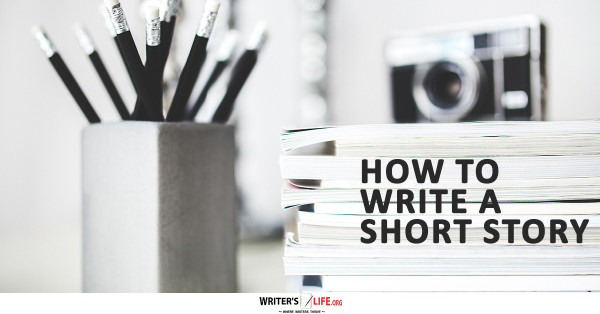- How To Tackle Jealousy In Creative Writing
- Common Submission Mistakes
- How To Stop Your Blog Becoming Boring
- The One Thing Every Successful Writer Has In Common
- How To Make Yourself Aware Of Publishing Scams
- Why Almost ALL Writers Make These Grammar Mistakes At Some Point
- 5 Tips For Authors On How To Deal With Rejection
- Top Mistakes to Avoid When Writing a Novel
- How to Avoid Common New Writer Mistakes
- 10 Mistakes New Fiction Writers Make
4 Things You Should Be Doing Before Writing a Short Story

Writing great short stories is a skill that takes practice and work. While you may think that it should be easier to write a short story than, say, a novel, it actually requires a great deal of thought and careful planning.
Think about it, you have got to get an entire, fully formed story, with a beginning, middle, and end into such a small number of words - you need to allow for your readers to engage with your characters, leave room for dramatic tension, and build up, create an exciting climax, and bring all the action together so when your reader is done, they feel satisfied and happy with how it ended.
Make no mistake - writing short stories isn’t as easy as it may seem!
So if you do want to give short story writing a go, follow these great short story writing tips to help you along your way.
Read Short Stories
All writers should read - it’s their research and their inspiration. We can learn so much from our contemporaries, and reading work from authors we admire will help us to see how it is done! Short stories often follow the same rhythm and pattern. The more you read, the more of that rhythm will be revealed, and soon you’ll get the hang of using it in your own short stories. Understanding the short story form is so important, so before you even attempt to write one, make sure you have read a few!
Summarise the plot
Before you begin writing your story you should have a good idea of exactly how you are going to write it. You need to know what the story is about, what action is going to take place, and how it is going to end. This is not necessarily the same with novel writing. Many novel writers like to ‘see where the story takes them.’ However short stories need to be sucicinct, and here, more than ever, every words needs to count. You need to know exactly where your story is going and how you are going to get there before you even put pen to paper.
Writing a logline can also be helpful. This is one line in which you sum up your story in its entirety. Spend some time getting this right. If you can do this well then you can use it to refer to, to keep you focused on the point of your story as you write it.
Writing your short story
Short stories need to start brilliantly - a catchy opening that delves immediately into the action will grab your readers attention from the outset. The art of a short story is being able to use clever language that perfectly captures a character, mood, or scene in just a few words. The good news is however, that while you may not have many words to play with, you do have time.
Get your first draft down without worrying too much about the content or word count. In fact going vastly over your word count is actually fine for your first draft. Once you’ve got the story written, you can start to look at it in more detail and work out how to cut it down.
Rewriting your short story
Rewriting and editing your short story is often the more fun part. Here is where you really have to think about how you can play with language, about how you can take out sentences and sometimes even whole paragraphs which aren’t necessary to the story. This exercise will make you a better writer, it will make you think about how to use language more sparingly, more cleverly and when you have cut your short story down, you should hopefully have a brilliantly written piece of work which keeps your readers hanging on your every word.
What you do next with your short story is up to you. If you are planning to submit it to be published then make sure it is error free, and that you have read it aloud, to yourself and any willing partners, friends or relatives who’ll listen to make sure that the story really flows.
Whatever you do, don’t overthink it - just get it out there and see what happens!






























